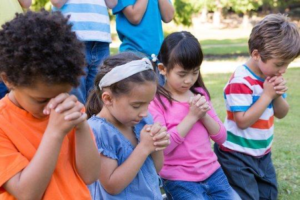Fay Robinson Tee was hoping to have an original entry in this year’s Jamaica Star Competition, but was disappointed to realise that since 2021, the format has been changed to that of participants entering popular cover songs.
Robinson Tee was told that she had the option of entering an original song, but it would not get beyond the qualifying rounds.
“I felt really disappointed, not merely for myself, but I asked myself a question. What would this mean for young upcoming gospel artistes who would just like an opportunity to get their music out there?”
She shared that it comes across as an attempt to stifle or muzzle the gospel music industry, considering how many people have been doing well on the gospel music scene since they first got their start via the competition.
“Just continuing to recycle what exists, for me, is muzzling, and what I’m asking for is nothing less than a rollback. They need to change it. Get back to the original, revisit the original objective of having a competition of this nature,” she asserted, adding that if they are concerned about quality, which she points out is across the board, then they need to start helping people to develop themselves.

The Creative Writing Competition each year hosts writing workshops prior to entries, and she feels the same can be done for gospel competition entrants.
“One of the purposes, I suppose, is to help ensure culture in the main stream, not some new version of culture, but real Jamaican culture—what it really means to be Jamaican—is preserved, so we can help develop our people. We have youngsters coming up who hardly know what it really means to be Jamaican, except for the colours. They have the opportunity to do workshops to coach people on how to write so that we can maintain quality. I don’t think the thing to do is recycle what exists and deny new talents an opportunity to fulfil their potential,” she noted.
Commenting on the changes, Gospel Festival song coordinator, Andrea Hinds McCurdy said it is a policy decision made by culture minister Olivia Grange, citing two main reasons:
The quality of entries (original songs and quality of entrants) being submitted was consistently falling below standard in the last few years of the competition, and there needed to be a shift to be more intentional in raising the standard of the competition.
The other reason given was that the focus of the original song format was the song and, to a lesser extent, the performer. This new format focuses on building out the performance skills of the performer, and from the training provided can come better performances and quality original material.
Poor-quality songs are not restricted to gospel alone, as in 2022, during Jamaica’s 60th celebration, the minister made the announcement that there would be no festival song competition. She informed that the judging panel advised that they were unable to choose 10 suitable songs from the entries despite extending the deadline.
From the 123 entries, nothing made the grade. Still, the secular aspect of the competition continues to enjoy original entries.
The public outcry saw judges eventually scrambling to find ‘good entries’ with Sacaj taking the top prize for her original entry, ‘Nuh Whey Nice Like Yard’ that year.
That competition continues to attract secular artiste who are given an opportunity to share original content.
In responding to concerns that gospel artistes are being sidelined, McCurdy said the festival has always been open to everyone ages 16 and older.
“It has never sidelined anyone or prevented anyone from entering. To the best of my knowledge, having been associated with the competition since 2007, no one has been prevented from entering. So, to say that anyone, including upcoming gospel artistes, has been sidelined is false,” she told Freedom Come Rain.
Over the years, the gospel song competition has been a launching pad for many artistes whose careers, since inception, have been unknown. After placing in the top three of the competition, their careers went from strength to strength, some still impacting the international stage. The most notable are Glacia Robinson, Kevin Downswell, Humming Birds, Edwin Myers, Lester Lewis, Jodian Pantry, Jabez, Lubert Levy, and George Gordon.
Addressing the question of the door being closed to original songs, McCurdy informed that the door remains open as the winner of the Gospel Star Competition gets an original single produced as part of their prize package.
“The reality is that the competition provides a platform and an opportunity for upcoming gospel aspirants to be trained and given visibility on a national stage. Thereafter, to become a prominent gospel artiste, they have to take what they learned and continue putting out good music, doing the groundwork to stay in the public domain. Those who attained prominence took the start they got from the JCDC and built on it through hard work and perseverance.”
She noted, too, that the secular song competition format went through changes from Popular Song Competition in the past before reverting to its current and original format years later.
“The idea behind changing to popular song was to allow for other songs from popular Jamaican genres to be featured, but after a while, the public clamoured for a return to the original format, which is what currently exists,” she said.
Still, for gospel pundits, the scale remains unbalanced as secular songs continue to enjoy original entries while gospel is relegated to performing cover songs.






